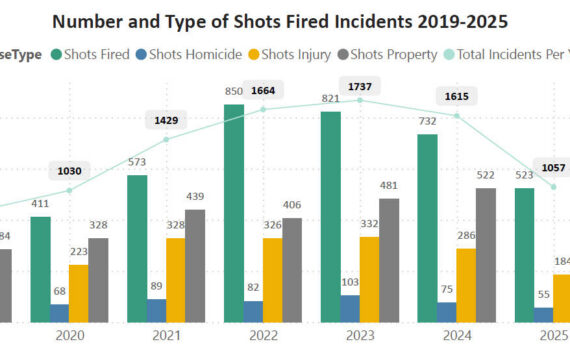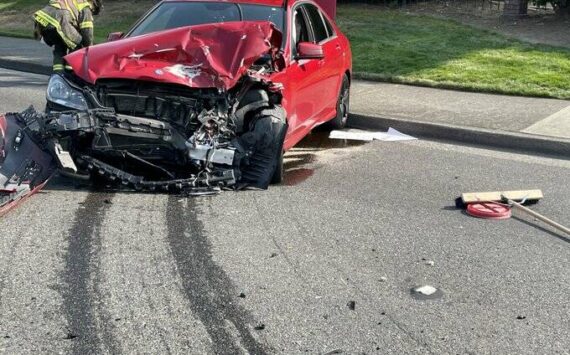LET THE TRIAL DECIDE
DEAR NINA SHAPIRO: I think overall your article [“Victim Without a Voice,” Oct. 31] was great and highlighted some serious issues. But the fact is that many domestic violence victims do not know what is best for them because they have been and often still are being controlled, manipulated, and lied to.
Can and should we expect prosecutors to be able to accurately discern what the reality is in every case? Or should we simply choose the side of caution and safety by saying that no-contact orders and prosecution will be pursued in every case with facts that justify it, regardless of the victim’s wishes?
If the alleged abuser really is innocent and there was no need for concern, it will come out in the trial (in theory) and the no-contact order will dissipate. But prosecutors, and we as a society, would be risking a lot if we didn’t act to protect victims until that determination was made.
Jesse Parker
Student, Seattle University School of Law
NEEDED: A PUSH
DEAR EDITOR: Domestic violence involves a significant amount of fear: financial fear, legal fear, immigration fear, social fear. In the case of the woman in the article, Andrea Rich-Bell, she doesn’t know how she is going to support her children if her husband is in jail. The problem is that she probably doesn’t see any other alternatives. But there are alternatives. And once the police arrest the abuser and the no-contact order is put into place, it is her responsibility to find these alternatives. Maybe the push from the police to take a step towards a life free from abuse is exactly what the victim needs.
H. Williams
Seattle
OUT OF MY HANDS—PLEASE!
DEAR EDITOR: As a former victim of domestic violence (before our current DV laws), I did have some power in the dropping of charges or refusing to testify. And my abuser made sure that I did so. I used to pray that the authorities would force me to go through with the prosecution so that it would be out of my hands and I could not be “punished” for cooperating. Eventually there came a time when 911 tapes could be entered as evidence to prove a DV case where the victim was afraid or unwilling to testify. This was a godsend to me.
Since nobody can force a victim to leave their living situation, I believe their wishes should certainly be considered with regard to the prosecution. It’s a delicate balance, however, and I’m sure there are many domestic violence survivors who were relieved and grateful to have that decision made for them. I would hate to see a return to the way things were before our current laws, where men were basically given a green light to assault their wives and if the police were called, they’d simply restrain him long enough for the woman to pack a few things and leave.
Molly Torres
Seattle
GEM OF A PIECE
DEAR MIKE SEELY: I’m not much of an e-mailer to authors, but I wanted to just say thanks for the great review of the Georgetown Truck Stop [Bottomfeeder, “Lethal Lunch,” Nov. 7].It’s hysterical and very informative—I would never have known about that gem and am very grateful that you took the time to highlight it. Great work, and thank you.
Nancy Ward
Seattle
TRUCK STOP NEVER FAILS
DEAR MIKE SEELY: I have quit going to certain coffee shops in Georgetown because there just is not any atmosphere, no personality, no sincerity, no thank you, no nothing. I often think of these people: “If you don’t like your job, then find something else to do.” Then I discovered the Truck Stop. I started going there because I saw two hardworking people starting a business. Since their opening, I have not been disappointed with the food or drink.You meet working-class people like myselfwho will at least talk to you, and you can have a conversation instead of just standing with your arms crossed staring at each other.
Frank Wood
Seattle
YOU MAY BE RIGHT,I MAY BE CRAZY, BUT . . .
In a Weekly Wire preview of last week’s Billy Joel show at KeyArena, Erika Hobart recounted a well-trod story, first reported in The New York Times, of the piano man throwing a total hissy fit onstage in the Soviet Union in 1987, overturning his instrument after bright lights flooded the auditorium, and declaring: “It’s my show!” Our write-up implied that Mr. Joel was upset with audience members and had likened them to characters in an oil painting.
Well, Mr. Joel—lounging, apparently, in his hotel suite with a bowl of green-only M&M’s and a fresh copy of the Weekly, as per his hospitality rider—called our editorial offices last week to contest that version of events. Seriously, he did. Here is his rejoinder, as transcribed by an awe-struck Mike Seely:
“Remember, this was the Soviet Union in 1987, and they’d never had a major rock concert before. There was a film crew filming a documentary, and they turned very bright lights on the audience. The audience was having a good time—until they turned the lights on. They froze; they turned paranoid. There was a lot of anxiety—why are we being looked at? And whenever they turned the lights on, anyone who was overreacting was being pulled out of the audience by a security guard. I wasn’t yelling at the audience—I was yelling at the film crew. So I threw the piano, and that got their attention. Then they stopped lighting the audience, and everybody started rocking out. That was the reason for that action—not because they looked like an oil painting. That was something I said to a reporter after the big shots in the Communist Party, despite our best efforts, sat in the front row at one of the shows. They looked like an oil painting. The regular people in the back were rocking out. Hey, I hate the camera being on me. If you looked like me, you wouldn’t want the camera on you either.”
We are grateful for the opportunity to correct the record.
Write to Seattle Weekly at letters@seattleweekly.com.




